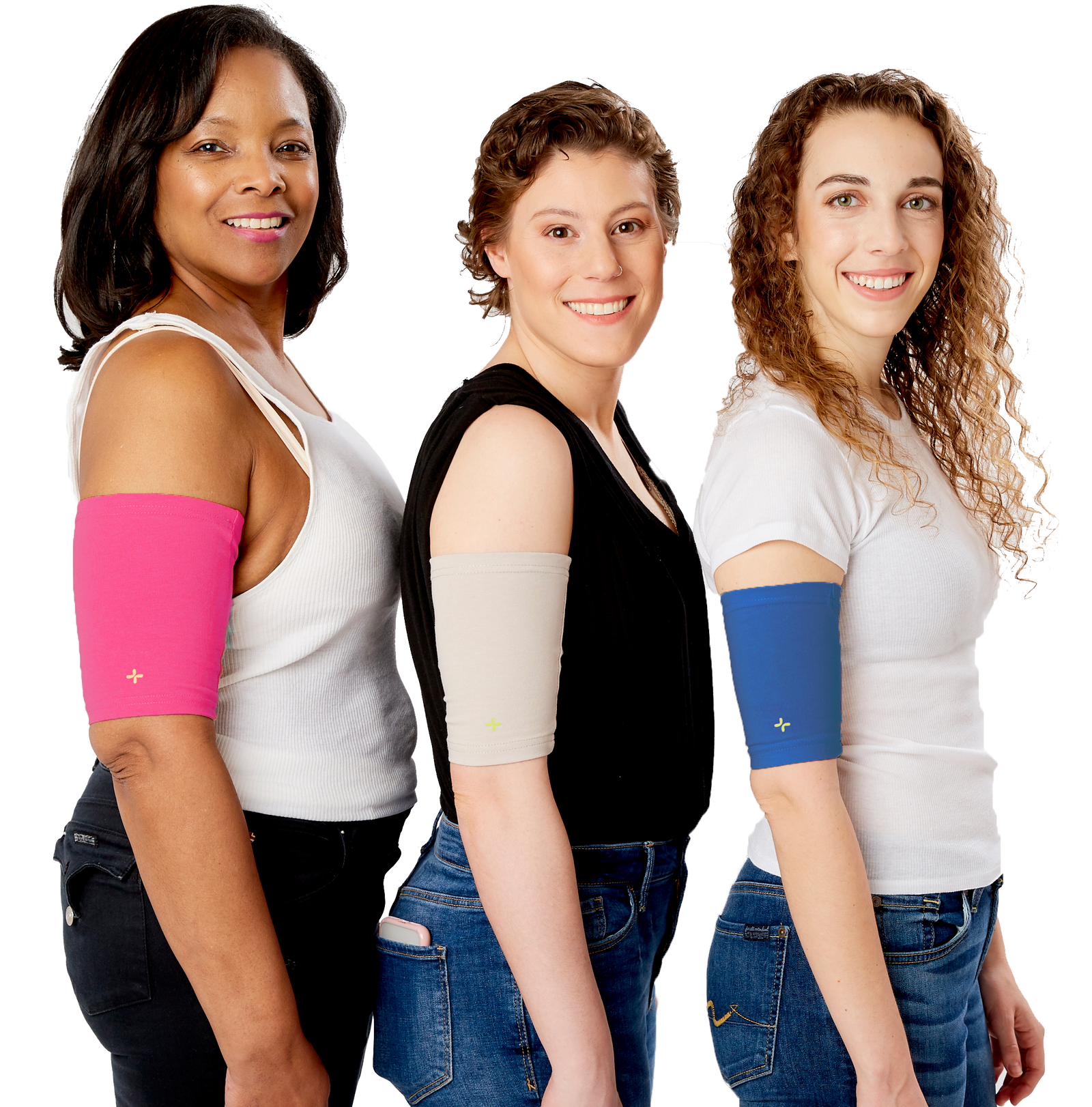We are closely monitoring the COVID-19 outbreak and will be continually updating this FAQ in collaboration with our medical advisors (updated July 24, 2020.)
Many of you have asked how to protect yourself from COVID-19 due to compromised immunity from chronic illness, or chemo treatment. We asked Elissa Thorner, Healthcare Consultant and Patient Advocate and Dr. Gregory Weingart, MD, a practicing ER physician, and Assistant Professor at the Eastern Virginia Medical School, what they are advising their patients.
What is COVID-19?
COVID-19 is the infectious disease caused by the most recently discovered coronavirus, SARS-CoV-2. On March 10, 2020, the WHO officially declared it a pandemic. It is highly contagious and can be passed from person to person, whether they are symptomatic or asymptomatic.
How does it spread?
COVID-19 is thought to spread mainly from person to person in close proximity to each other. The virus spreads through contagious droplets from a cough or a sneeze, which can then spread droplets up to six feet. The virus floats in the air and can infect surfaces or objects. The virus can remain in the air for up to 3 hours and on most surfaces for up to 3 days. The virus floats in the air and can infect surfaces or objects. If a person touches an infected object, they can transmit the virus to themselves if they touch their mouth, nose, or possibly eyes.
What are the symptoms?
Once contracted, it continues to live in the nose and throat and then trickles down to the lungs causing early symptoms like shortness of breath, body aches, cough, and fever. Up to 30% of patients report having a loss of smell as one of the first symptoms This virus varies in severity from patients being completely asymptomatic to flu-like symptoms to respiratory failure, and in extreme cases, death.
What should if I do if I have to go out in public?
When out in public, it is imperative that you try to limit your contact with other surfaces and other people. Try to consciously not touch anything (keep your arms folded or in your pockets). While out in public, try and wash your hands as much as you can. Likewise, it is imperative that you wash your hands when you return home. And if you just returned from a highly infectious area like the hospital or another area that is highly trafficked, you may want to consider bathing and changing your clothes. I would also wash the clothes that you wore out immediately.
Who is at a higher risk?
Older adults, patients with chronic medical diseases, and those who have a compromised immune system are at higher risk to contract coronavirus. Factors leading to compromised immunity are recent illness, stress, chronic illness such as diabetes, autoimmune disease, and cancer treatments such as chemotherapy.
What is a compromised immune system?
In simple terms, an individual has a compromised or weak immune system when their immune system is not functioning as a healthy and normal person would be. The body is not as effective at fighting off an invading virus such as COVID-19.
I have a compromised immune system. How can I reduce my risk?
The CDC has published guidelines for communities to mitigate risk for COVID-19. Most important for anyone, is to practice good hygiene.
- Use sanitizers as they help kill germs when hand washing is not available. Here is how to make your own hand sanitizer
- Wash your hands for a minimum of 20 seconds
- Avoid touching your face
Next to good hygiene, social distancing is one of the most effective preventative measures for those with compromised immunity because it prevents exposure. The risk is that many infected people do not show any symptoms or have only mild symptoms.
- Avoid public gatherings and crowds. Try to pause all public activity for at least 2 weeks
- Maintain social distancing. The World Health Organization (WHO) suggests that individuals maintain at least a 6 feet distance between themselves and anyone who is coughing or sneezing.
- In consultation with your doctor, delay routine or elective medical care if it is not necessary to go to the hospital
How can I maintain strong immunity?
Elissa tells her patients the key to having a healthy immunity is to eat healthily by focusing on a balanced diet. Ensure that you have a substantial intake of fresh fruit and vegetables that are diverse in colors, with plenty of vitamin C to boost your immune system. Avoid processed foods and sugars. Stick to ingredients that naturally occur (rather than those that are processed) and preferably home-cooked meals instead of going out to eat right now. She also noted that she is not aware of any clinical data where supplements have been shown to increase immunity.
How can I stay positive and not feel isolated if I maintain social distancing?
Self quarantining could be challenging and could eventually lead to loneliness and boredom. Some tips to combat loneliness would be:
- Enroll in online classes that could keep you entertained
- Discover a skill and pursue it, it could be drawing, painting, etc
- Catch-up with friends via video chat. Use FaceTime, Google Hangouts, Skype, any of the other video chat platforms.
- Read a new book, try journalling or explore a new TV series
- Use this time to do those projects that are on your to-do list such as organize papers or clean out closets
-
Share your story via email or Instagram with your community!
What about physical activity? Going to the gym? Should I stay at home?
Physical activity is healthy but you must avoid visiting the gym or attending in-person classes to prevent the potential spread of germs. Not only does physical activity help you stay fit, but it provides endorphins that boost positive feelings and your mental well-being.
The American Heart Association recommends “at least 150 minutes (2.5 hours) of heart-pumping physical activity per week.” This could include cardio, yoga, and weight-bearing activities. For cancer patients, this can be daunting. Even a walk around the block is beneficial. There are also many fitness groups that are offering online classes such as yoga and meditation. Remember to practice social distancing!
Misinformation, and how to evade it!
There has been a wave of incorrect information on multiple social platforms. We urge everyone to refer to credible sources like the Centers for Disease Control and Prevention (CDC) and the World Health Organization (WHO). These are the two trusted sources for all information.
Do I need an N-95 mask?
You don’t need an N-95 mask if you are well and healthy. The N-95 Mask is designed for the healthcare worker working in a confined space of the hospital. For those that have been diagnosed with COVID-19, it is recommended to wear a standard surgical mask to prevent the spread of the virus. Here’s a video explaining when and how to use a mask by WHO.
I can’t find disinfectant. What do I do?
The CDC recommends disinfecting surfaces to kill germs and viruses. Be sure to wear disposable gloves and discard after each cleaning. If you can’t find one of the approved disinfectants, you can make your own disinfectant by mixing:
- 5 tablespoons (1/3rd cup) bleach per gallon of water OR
- 4 teaspoons bleach per quart of water
This is a difficult time for all of us, but together we will get through it! The information is accurate as of press time. As the situation surrounding coronavirus continues to evolve, please stay informed on news and recommendations by using the CDC, WHO, and your local public health department.
We are here for you! Please stay safe and feel free to contact us if we can be helpful in any way!
Authors:
Gregory Weingart, MD, a practicing ER physician, and Assistant Professor at the Eastern Virginia Medical School
Elissa T. Thorner, B.S., M.H.S., Healthcare Consultant and Patient Advocate










Leave a comment (all fields required)